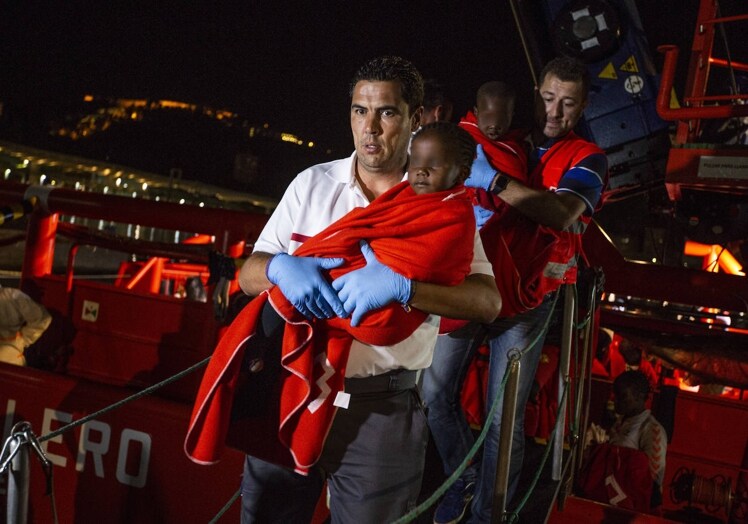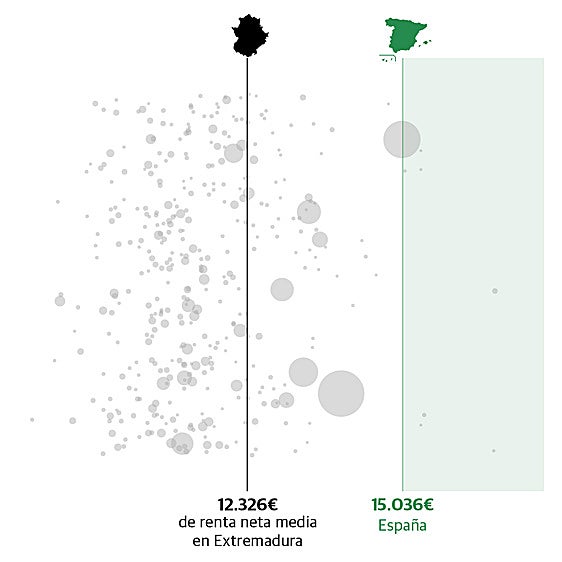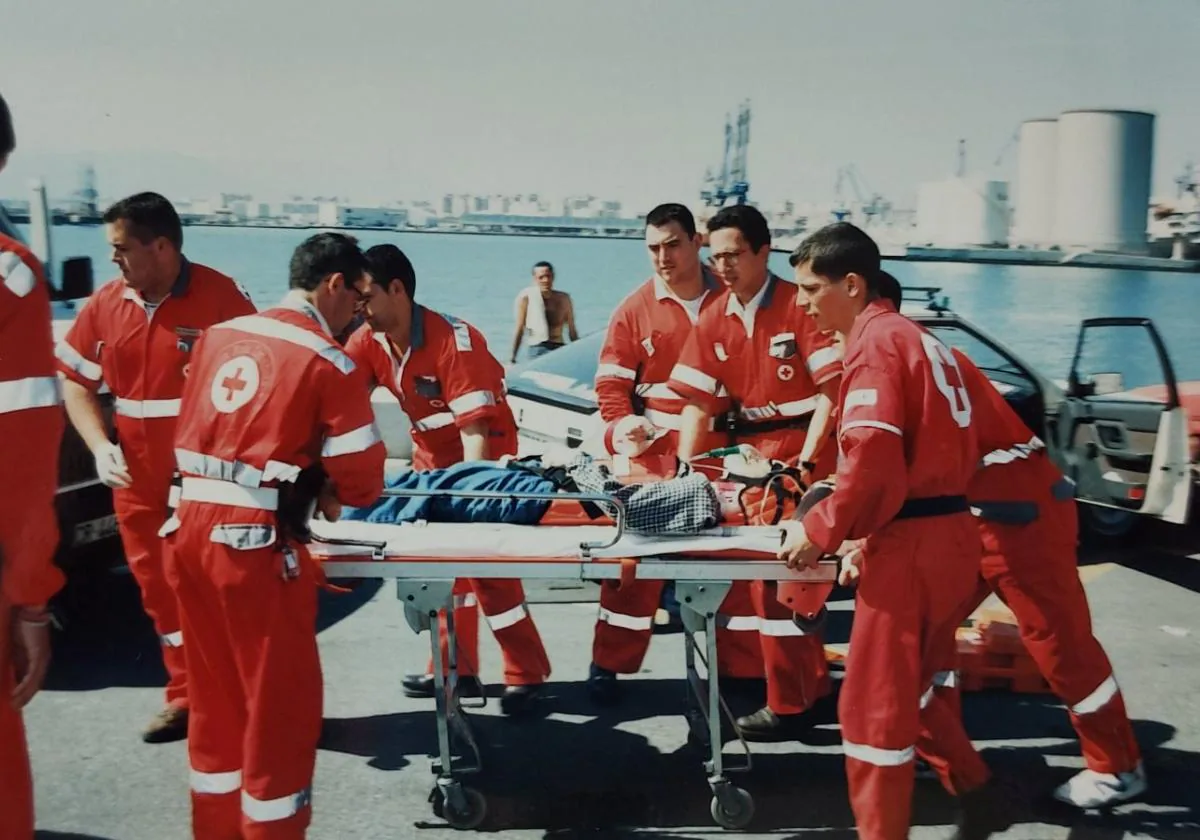150 years helping the vulnerable people of Malaga
Spanish Red Cross. On this important anniversary, the provincial branch of the Cruz Roja is proud of always taking the path most needed, from healthcare to social work
Cristina Pinto
Malaga
Viernes, 19 de mayo 2023, 10:59
A century and a half of caring for the most vulnerable people in the province. Always beside the most needy in the places where most never set foot. From the wars of the late 19th and 20th centuries to the latest health and economic crises of just two years ago. From hospital care, maritime rescue, and drug addiction to migration crises.
"In Malaga, the path of the Cruz Roja [the Spanish Red Cross] has followed in the footsteps of the city," said the president of this institution for Malaga province, Luis Utrilla, in a conversation with SUR for the organisation's 150th anniversary. He also talked of his book Un Sueño Cargado de Futuro, (a dream full of the future), which includes all the key events in which the Cruz Roja has championed the needs of the most disadvantaged groups in the province.
"At the end of the 19th century, the Cruz Roja was with those wounded in the colonial wars in Cuba and Puerto Rico; in the 20th century, the task was to care for all those affected by, and wounded in, the Rif war; then several floods in the Guadalmedina area; then a drought similar to the current one that caused severe famine in inland towns; the consequences of the tragic first world war and the first Spanish 'flu pandemic with more than 6,000 deaths in Malaga..." This is how Luis Utrilla listed just some of the events in which this institution has been involved and where "state institutions never reached".
There were key moments in history in which the Cruz Roja was the greatest provider of healthcare: "In those years of wars and crises the main job was to care for the sick because, under state healthcare, patients could not be treated beyond the local cottage hospital, and that is why our organisation dealt with so many illnesses," he recalled.

Healthcare was the core work of the organisation, but towards the end of the 1960s the nature of that work began to change: "We stepped back a little from our involvement in healthcare, conflict and catastrophe, to start attending to wider social issues; at that time it was a new thing, yet now it seems to us that it has always been there ..... this changed our perspective, so in the '80s we began to address drug addiction with the arrival of heroin in Malaga, something that caused serious havoc in the population," stated Luis Utrilla.
He has headed up the organisation for eight years.
"In the late '90s and early 2000s we dedicated ourselves to economic crises and the problems of the boat people and we have had successive immigration crises since then. In 2012 we handled more than 12,000 people landing on our coast... Now we have two care centres for immigrants and refugees in Malaga," he said.
And now, in 2023, they celebrate their 150th anniversary and continue with their main task: "Getting to deal with those areas that the state institutions cannot reach," stressed the president of Malaga's Cruz Roja.
Right now they have some sixty programmes active in the province of Malaga and dedicated to the most vulnerable people in terms of employment, drugs and other addictions, victims of domestic violence, support for children and the elderly, among others.
"We have more than 25,000 members throughout the province and more than 6,000 volunteers, who are the heart and soul of the institution," said Luis Utrilla.
Those thousands upon thousands of people who at some point have worked with the Cruz Roja are the essence of the organisation, the main people responsible for the fact that each good deed has been completed and every bit of aid has reached those in need of it.
"Our work is always collective because, fortunately, we have always been somewhat anonymous, we are remembered more for the job being done than the individuals who actually did it," stressed the president, who announced that around 85,000 people throughout the province are currently receiving help.
"That's an important number of the population for whom we continue to work like those thousands of Malaga folk who have gone before us and who have made Malaga a little more humane," concluded Luis Utrilla, with pride in his voice for the work of this organisation.



